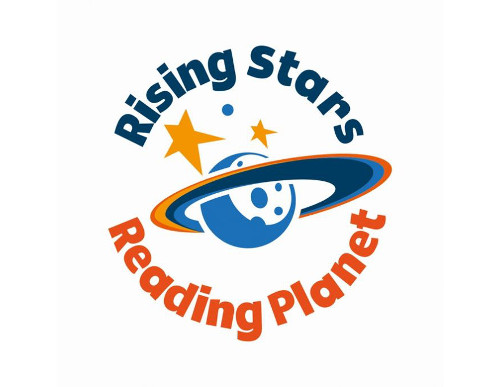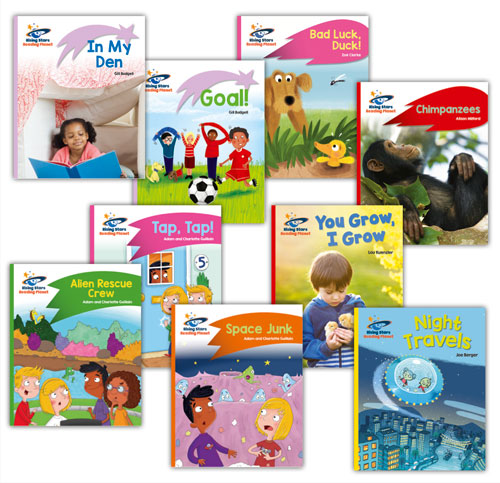Children who read with their parents most nights are three three months to a year ahead of those who don’t, teachers say.
Parents have to bribe children to get them to read, survey reveals.
Teachers and parents concerned that school reading books are unimaginative and fail to comply with the tough new primary curriculum and tests.
Children who read with their parents most nights have a reading age three months to a year ahead of their classmates who do not, new research suggests.
For the first time, primary school teachers have attempted to quantify the impact of parents regularly reading with their young children after school and at weekends.
In a survey [1] commissioned by education publisher Rising Stars to mark the launch of Reading Planet, its new reading scheme, more than 80 per cent of teachers estimated that reading at home most nights put children months ahead.
Nearly a quarter (22 per cent) said the advantage was over six months and up to a year. A similar amount put children with a regular reading regime three to six months ahead.
Nearly a third of teachers (31 per cent) said that pupils who did not regularly read with their parents or carers at home were likely to always remain behind their peers who do.
Parents understand the importance of reading with their children. In a separate Rising Stars survey of more than 500 families with three to eight year olds, just under 90 per cent said they read stories to and with their children at least three days a week, with half doing so every day.
But they revealed that in an era when digital distractions are ubiquitous, getting their child to pick up a book can be difficult. Nearly two thirds (60 per cent) admitted to “bribing” their children to get them read.
Rewards included late bedtimes, sweets and chocolate, screen time, money and trips to theme parks and zoos.
Teachers too are using incentives. In the survey of more than 250 primary staff, as well as giving stickers (75 per cent), more than 30 per cent promise creative activities – such as drawing or painting – in return for extra reading, while over a quarter gave pupils extra playtime.
In both surveys, respondents raised a number of concerns about the reading schemes currently in use in English schools. Reading schemes are sets of books, pitched at different levels of difficulty, which schools used to teach pupils to read.
Many parents questioned the quality and quantity of the books currently used by their school.
More than a third said they were “unimaginative”, “outdated and old-fashioned” or “boring”. Over 80 per cent are buying their own books to help their children read. Nearly two thirds said they bought books because their child had finished all the books provided by the school. A further 22 per cent of parents said that the school did not provide enough books. One in ten parents is spending between £100 and £200 a year on reading books, while 30 per cent spends £50 to £100 annually.
Teachers too have their doubts about current reading schemes. Some said children were losing interest in reading because of boring storylines, out of date content, one-dimensional characters and a lack of humour.
One in five thought the scheme in their school was too prescriptive and did not allow for children who were ahead or behind. A similar proportion said they were “unimaginative” . Half of teachers supplement the reading scheme with their own resources and 16 per cent do not rely on the schemes at all.
Teachers also raised questions about whether current reading programmes were compliant with the government’s tough new primary curriculum and would help prepare children for national assessments.
More than one in ten teachers were worried that current schemes might contain language and grammar that was not in line with the overhauled curriculum. Half of teachers supplement reading schemes with their own work sheets to ensure classes met the rigorous new standard.
In response to the changing curriculum and in light of new literacy research, Rising Stars has developed a revolutionary new reading programme called Reading Planet.
Launched this month, it is the first reading scheme to be designed following the changes to the primary curriculum and key stage assessments that came in to force in 2015 and is the most up-to-date and fully compliant with its new requirements.1
Speech rhythm training is embedded in Reading Planet. This teaches young children where to put stress and intonation in words and sentences, which can be incorporated in to the daily diet of phonics that children are already receiving.
The evidence-based new programme was inspired by compelling research conducted by Coventry University. It shows that children who understand the rhythms of speech, such as which syllable to stress and the rising intonation at the end of a question, make faster progress in their reading than those who have less awareness of the elements of spoken language.
Now two new studies by the team have shown for the first time that explicitly teaching children about stress, intonation, pitch and timing in everyday speech can boost children’s early word reading. The speech-rhythm intervention resulted in significant gains for children who were just beginning to learn to read and for seven and eight-year-olds who had hitherto struggled with their reading.
Dr Emily Harrison, one of the research team at Coventry University, said: “The results are really exciting and part of an ongoing programme of research. In both the beginning readers, and the older struggling readers, the speech rhythm intervention resulted in significantly greater gains in reading than the control intervention. This means that speech rhythm training is effective both at the beginning of reading tuition, and once children have already received some formal training.”
Helen Parker, from Rising Stars, the publishers of Reading Planet, said: “The research shows that children with speech rhythm sensitivity make better progress in their reading. But current resources in schools pay little or no attention to this aspect. As little as 10 minutes a day of speech rhythm training can make a significant difference. It helps to ensure young children are ‘reading ready’, it makes it more likely that children who have started the reading journey make immediate progress and for children who may be struggling with their reading, it provides a fresh, new, evidence-based approach.”
Parents already understand the importance of stress and intonation in reading. The survey findings show that when they read to their own children they instinctively use their voice to help get the meaning of the words across. More than a third (35%) stress words and exaggerate pronunciation, more than a quarter (27%) act out the story and nearly two thirds adopt different voices to distinguish the characters.
The schools that took part in the Coventry University research said the speech rhythm training had inspired pupils and helped boost their reading progress.
Wendy Whitt, a teacher at Wren Park Primary School, in Derby, said pupils enjoyed the activities from the start. She said: “The children participated with enthusiasm and looked forward to their speech rhythm sessions with excitement.”
Her colleague Katherine George said that the 10 to 15 minutes of speech rhythm training complemented the phonics work in the classroom and had a positive impact on children’s reading progress. “The resources were engaging and accessible and allowed the children valuable and enjoyable one-to-one time to explore, play and consolidate their phonetic understanding,” she said. “The programme complemented the ongoing work within the classroom and contributed successfully towards the children achieving well and making good progress with phonics and reading”.
Henley Green Primary, in Coventry, also took part in the research. Jacquie Turner, the literacy lead at the school, said: “I instinctively felt that speech rhythm sensitivity probably did have an impact on reading so was very keen to get involved. It is the case that those children who read with the proper intonation tend to be good readers and vice versa.”
Reading Planet can be found at www.risingstarsreadingplanet.com
[1] Research conducted by Opinion Matters 19 April to 21 April 2016, 251 primary school teachers of children 3-8; and 501 parents of 3-8 year-olds who go to primary school















































